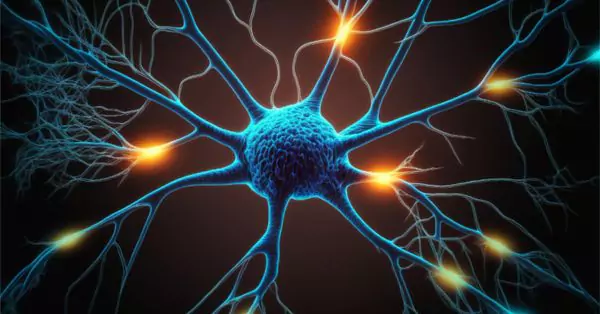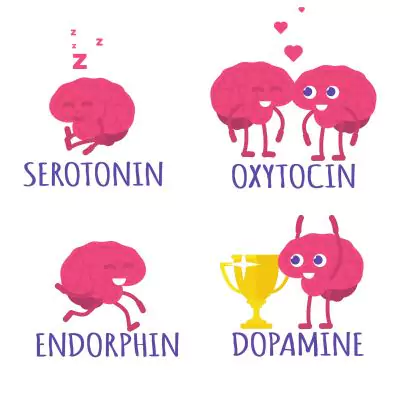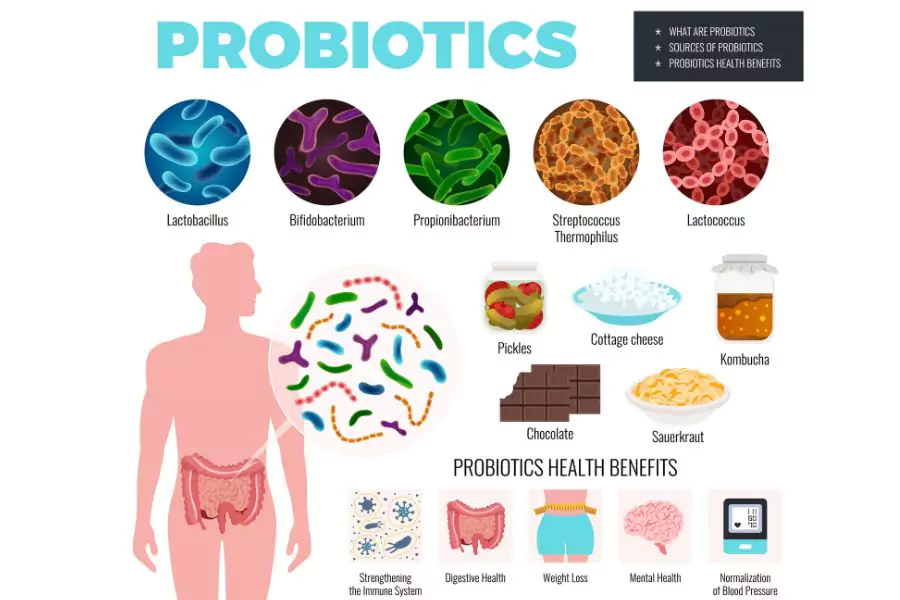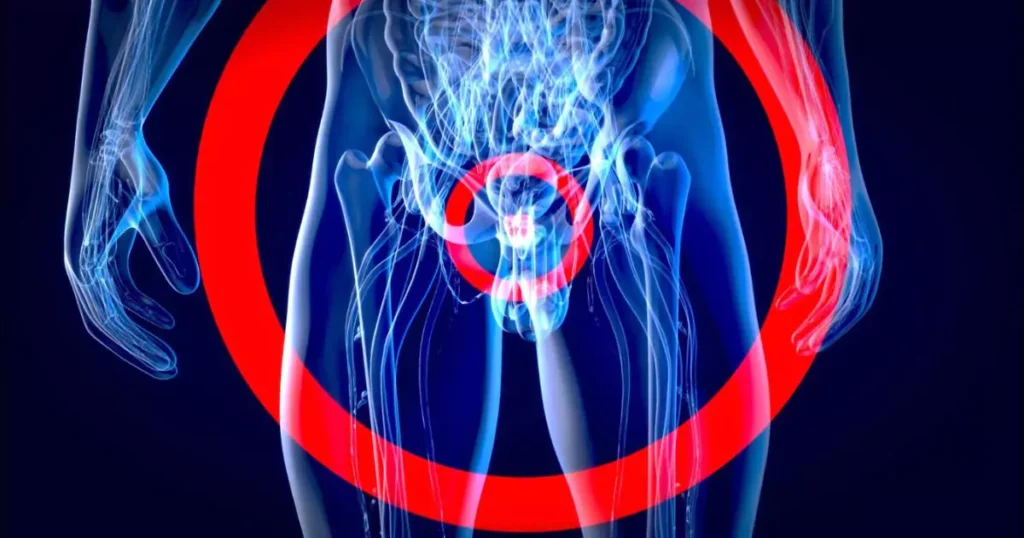
Dopamine is often thought of as the “feel-good” chemical in our brains that motivates us to do things that bring us pleasure, like shopping, playing video games, or endlessly scrolling through social media apps like TikTok, Facebook Instagram Reels and Youtube Shorts. However, dopamine’s role in the brain is much more complex and important than just creating pleasure. It plays a crucial role in many neurological and physiological functions, influencing our behavior, mood, and even physical movement. The good news is that there are natural ways to increase dopamine levels, which we will explore in more detail.

A Practical Example:
Consider the simple act of anticipating a handwritten letter. This anticipation can trigger the release of dopamine, a neurotransmitter, in your brain. This chemical release creates a connection between the act of checking the mailbox and the joy of receiving personal, tangible messages. The unique handwriting and personal touch of the letter add to the sensory experience, enhancing the dopamine effect. As you open the envelope and read the heartfelt words, your brain continues to release dopamine, reinforcing the positive association with this form of communication.
However, if the eagerly awaited letter doesn’t arrive, it can paradoxically lead to an increase in dopamine levels. This unfulfilled expectation may affect your mood, creating a sense of longing and a heightened desire for the anticipated reward – in this case, the emotional satisfaction of connecting with a friend through their written words. This cycle of anticipation, reward, and potential disappointment reflects the complex interplay of neurotransmitters in the brain, influencing both our emotions and behaviors.
Dopamine’s Role and Function:

Dopamine is produced in both the brain and adrenal glands and acts as a vital chemical messenger between neurons. It is closely associated with feelings of pleasure, reward, and reinforcement. When you engage in behaviors that your brain perceives as beneficial, it releases dopamine, creating a link between those actions and feelings of pleasure. These small bursts of dopamine reinforce the behavior, increasing the likelihood that you will repeat it.
The brain cells responsible for releasing dopamine determine which behaviors are perceived as pleasurable. In a healthy brain, the release of dopamine is a self-regulating process that happens automatically, without conscious control. Contrary to the concept of a “dopamine fast,” avoiding overly stimulating activities doesn’t actually decrease dopamine levels. While short-term abstinence from electronic devices can offer benefits like improved sleep, it doesn’t deplete your brain’s dopamine stores.
Beyond its role in pleasure and reward, dopamine influences a wide range of bodily functions, including memory and focus, mood and emotional responses, motor control, sleep, and stress response, among others. It’s important to note that dopamine works in concert with other neurotransmitters and hormones, like serotonin and adrenaline, contributing to overall physical and psychological well-being. Various environmental factors can influence dopamine levels, highlighting its complex role in our bodies.
Dopamine, serotonin, oxytocin, and endorphins are all neurotransmitters and hormones that play significant roles in regulating mood, behavior, and physiological processes in the body. Each of these chemicals has unique functions and effects:

- Dopamine:
- Function: Dopamine is often referred to as the “feel-good” neurotransmitter. It’s heavily involved in the reward and pleasure centers of the brain, influencing motivation, reward, and reinforcement.
- Roles: Dopamine plays a critical role in motor control and is linked to movement, which is evident in its association with Parkinson’s disease, a condition characterized by dopamine deficiency. It’s also involved in cognitive functions such as attention and problem-solving.
- Effects: High levels of dopamine can lead to feelings of euphoria, bliss, and enhanced motivation and concentration. Low levels can result in a lack of motivation, fatigue, addictive behavior, and mood swings.
- Serotonin:
- Function: Serotonin is known as a mood stabilizer. It’s produced in the brain and the intestines and contributes to the regulation of mood, anxiety, and happiness.
- Roles: Besides mood regulation, serotonin also plays a key role in sleep, digestion, and appetite control. It helps regulate the body’s internal clock and is involved in the sleep-wake cycle.
- Effects: Low levels of serotonin are associated with depression, anxiety, and sleep disorders. Adequate levels are crucial for maintaining a stable and positive mood.
- Oxytocin:
- Function: Often called the “love hormone,” oxytocin is associated with social bonding, sexual reproduction, and childbirth.
- Roles: It plays a significant role in behaviors such as maternal bonding, empathy, trust, and relationship-building. Oxytocin is also involved in various reproductive functions, including childbirth and lactation.
- Effects: Increased levels of oxytocin can enhance feelings of bonding and attachment in relationships. It’s known to reduce stress and anxiety and promote feelings of calm and security.
- Endorphins:
- Function: Endorphins are natural painkillers produced by the body. They are released in response to pain and stress and help to alleviate discomfort and promote a sense of well-being.
- Roles: They are known for their role in the body’s response to stress and pain. Endorphins also play a part in the “runner’s high” that athletes experience after prolonged exercise.
- Effects: High levels of endorphins lead to feelings of euphoria and a temporary reduction in pain. They can improve mood, reduce stress and anxiety, and enhance overall well-being.
Together, these neurotransmitters and hormones contribute significantly to our mental health, emotional well-being, and physical health. Imbalances in any of these chemicals can affect various aspects of health and are often targeted in treatments for mood disorders, pain management, and other conditions.
Low vs. High Levels of Dopamine:

Imbalances in dopamine levels are linked to several mental health conditions. Excess dopamine can lead to behaviors characterized by aggression and impulsivity and is associated with conditions like ADHD and addiction. On the other hand, low dopamine levels can result in decreased motivation, feelings of fatigue, and physical symptoms like muscle stiffness, often seen in conditions like Parkinson’s disease.
Feeling balanced in terms of dopamine levels can contribute to sensations of happiness, motivation, alertness, and focus. Conversely, low dopamine levels might leave you feeling tired, unmotivated, and unhappy, potentially accompanied by memory loss and sleep disturbances. High dopamine levels can cause euphoria and increased energy but may also lead to problems like insomnia and poor impulse control.
How to Increase Dopamine Levels Naturally?
There are natural ways to boost or balance dopamine levels, including changes to lifestyle and diet, as well as the use of supplements and medications.
1. Physical Activity:

Regular exercise, such as walking, swimming, or cycling, has been shown to improve mood and potentially increase dopamine levels. While the exact parameters of exercise for optimal dopamine benefits are still being studied, the positive effects of physical activity on mental well-being are well established.
2. Dietary Adjustments:
Foods rich in amino acids like l-tyrosine and phenylalanine (found in chicken, beef, eggs, beans, and dairy) may aid in increasing dopamine levels. Natural dopamine sources like bananas, avocados, plantains, peas, eggplants, citrus fruits, and tomatoes also contribute. A balanced diet is crucial, as both extremely high and low intake of these amino acids can impact dopamine levels.
The gut-brain connection shows that certain gut bacteria can influence dopamine production. Probiotics have shown promise in reducing symptoms of anxiety and depression, although more research is needed in this area.
Levodopa, a substance needed for dopamine production, is often prescribed as medication for individuals with Parkinson’s disease. Velvet beans are known to be rich in levodopa and may naturally increase dopamine levels. Animal studies suggest potential antidepressant effects of levodopa in velvet beans, but caution is advised due to potential toxicity. Consulting healthcare professionals before making any dietary changes is recommended.

Saturated fats, found in animal fat and butter, may affect dopamine signaling, potentially through inflammation. This relationship between dietary fats and dopamine opens interesting avenues for future research.
3. Get Enough Sleep:
Adequate sleep is essential for maintaining balanced dopamine levels. Sleep deprivation has been linked to lower dopamine activity and negative effects on brain function. Dopamine plays a role in regulating wakefulness, with substantial release in the morning to signal wake-up time and natural declines in the evening to aid sleep. Establishing consistent, high-quality sleep patterns is crucial for balanced dopamine levels, promoting alertness and optimal functioning throughout the day.
4. Listen to Music:
Studies on both humans and animals have shown that listening to music can stimulate dopamine release in the brain. Music therapy has potential as an alternative treatment or supportive approach for mood disorders like depression and neurodiverse conditions such as ADHD.
5. Meditate:
Meditation techniques promote mind and body integration, calming the mind and enhancing well-being. Focusing on sensations like breathing, sound, visual images, or mantras can reduce stress and anxiety and have other health benefits. A groundbreaking study using PET scans observed a 65% increase in dopamine release during Yoga Nidra meditation, suggesting that being in a meditative state reduces the brain’s readiness for action, making us calm and reflective.
6. Get Enough Sunlight:
Reduced exposure to sunlight has been linked to lower levels of mood-boosting neurotransmitters, including dopamine. A 2012 study found that people with more exposure to sunlight had significantly more dopamine receptors available in their brains compared to those with less exposure, even after accounting for factors like age, sex, and smoking status. So, more sunshine appears to correlate with more available dopamine receptors in the brain, indicating a higher flow of dopamine.
7. Reading Books

Reading books, especially fiction, can boost dopamine levels in the brain, a neurotransmitter associated with feelings of pleasure and reward. This neurotransmitter, commonly linked to sensations of enjoyment and reward, is naturally secreted when we partake in pleasurable pursuits. The act of reading immerses us in a world of mental imagery and narrative simulations, effectively activating regions in the brain that are also involved in processing real-life experiences. This stimulation leads to a surge in dopamine levels, eliciting feelings of gratification and contentment comparable to the satisfaction one might derive from accomplishing personal objectives or savoring favorite foods. Furthermore, the practice of reading fiction has demonstrated its efficacy in mitigating symptoms of depression. This therapeutic effect is attributed to the escapist nature of fiction, offering readers a temporary refuge from their real-world concerns, and fostering a sense of connection and empathy with the characters and stories encountered within the pages.
Supplements and Medications:
When considering natural methods to increase dopamine levels, supplements and certain medications can play a significant role. However, it’s important to approach these options with caution and under the guidance of a healthcare professional due to potential side effects and interactions with other medications.
Supplements:
Vitamin D3: Some research suggests that vitamin D3 supplementation may help increase dopamine levels. Vitamin D receptors are present in the same areas of the brain associated with depression. Vitamin D’s role in the synthesis of neurotransmitters like dopamine might be significant, though more research is needed to fully understand its impact on focus and well-being.
Probiotics and Prebiotics: Certain probiotics and prebiotics, particularly specific strains of bacteria such as Bacillus, may influence dopamine production in the gut. This is part of the broader gut-brain axis, where gut health is increasingly understood to impact mental health. Probiotics can potentially modulate the microbiota in a way that influences neurotransmitter levels, including dopamine. However, research in this area is still in its early stages, and the effectiveness of these supplements in treating dopamine-related medical conditions is not fully established.

Other Supplements: Additional supplements that might influence dopamine levels include omega-3 fatty acids, which are crucial for brain health and can influence neurotransmitter production, and magnesium, which plays a role in many biochemical reactions in the body, including those that produce dopamine. Herbs like Mucuna pruriens, which contain l-dopa, a direct precursor to dopamine, are also used. However, it’s vital to consult with healthcare professionals before starting any new supplement regimen.
Medications:
- Ropinirole and Pramipexole: These medications are dopamine agonists, meaning they stimulate dopamine receptors in the brain. They are commonly prescribed for Parkinson’s disease and Restless Legs Syndrome (RLS). By activating dopamine receptors, these drugs can help compensate for the lack of dopamine, which is a characteristic of these conditions. However, they must be used under strict medical supervision due to potential side effects, including nausea, dizziness, and somnolence.
- Levodopa: Levodopa is often used in the treatment of Parkinson’s disease. It works by crossing the blood-brain barrier and then being converted into dopamine. This helps to replenish the reduced levels of dopamine characteristic of Parkinson’s disease. Levodopa is usually combined with another medication, carbidopa, which prevents levodopa from being converted into dopamine outside the brain, thus increasing its effectiveness and reducing side effects like nausea.
- Other Medications: In some cases, doctors might prescribe certain antidepressants that can indirectly affect dopamine levels by influencing other neurotransmitters that interact with dopamine systems. However, these are generally prescribed for specific conditions and always under medical guidance.
It’s critical to remember that while these supplements and medications can be beneficial in managing conditions associated with dopamine imbalance, they are not a one-size-fits-all solution. Each individual’s needs can vary greatly, and what works for one person may not work for another. Always consult with a healthcare provider to determine the best course of action for your specific situation.
Precautions For Supplements and Medications
When considering supplements and medications to increase dopamine levels, it’s essential to take certain precautions to ensure safety and effectiveness. Here are some general guidelines and precautions for the supplements and medications mentioned:
Precautions for Supplements:
- Vitamin D3:
- Overdose Risk: Vitamin D is fat-soluble, meaning it can build up in the body to toxic levels if taken in excessive amounts. Symptoms of vitamin D toxicity include nausea, vomiting, weakness, and serious complications like kidney damage.
- Interaction with Medications: Vitamin D can interact with certain medications, including steroids and weight loss drugs.
- Health Conditions: People with conditions like hyperparathyroidism should be cautious as vitamin D can raise calcium levels.
- Probiotics and Prebiotics:
- Immune System Considerations: Individuals with compromised immune systems or those who are critically ill should be cautious, as probiotics can sometimes lead to infections.
- Interaction with Medications: Probiotics can interact with immunosuppressive drugs.
- Digestive Issues: In some cases, probiotics can cause bloating and gas.
- Omega-3 Fatty Acids:
- Blood Thinning Effect: High doses can thin the blood, which might be a concern for people taking blood thinners or those with bleeding disorders.
- Interactions: Can interact with medications like blood pressure drugs.
- Contaminants: Some fish oil supplements might contain contaminants like mercury, especially if not properly purified.
- Magnesium:
- Overdose Risk: Excessive intake can cause diarrhea, nausea, and abdominal cramping.
- Kidney Function: People with kidney disease should avoid taking magnesium supplements without consulting a doctor.
- Drug Interactions: Magnesium can interact with antibiotics, osteoporosis medications, and muscle relaxants.
Precautions for Medications:
- Ropinirole and Pramipexole:
- Side Effects: These can include dizziness, nausea, and sleepiness. In rare cases, they can cause impulse control disorders, like compulsive gambling or eating.
- Withdrawal Symptoms: Abruptly stopping these medications can lead to withdrawal symptoms. Dosage should be reduced gradually under medical supervision.
- Monitoring: Regular monitoring by a healthcare provider is essential to manage side effects and effectiveness.
- Levodopa:
- Long-Term Use Effects: Long-term use can lead to fluctuations in effectiveness and dyskinesias (involuntary movements).
- Protein Interaction: Dietary protein can affect the absorption of levodopa, so meal timing and diet composition may need to be managed.
- Other Medications: Levodopa can interact with certain antidepressants and antipsychotics.
- Antidepressants:
- Side Effects: Can range from mild (like dry mouth or dizziness) to severe (like weight gain or sexual dysfunction).
- Suicide Risk: Some antidepressants can increase the risk of suicidal thoughts, particularly in young people.
- Withdrawal: Stopping antidepressants suddenly can cause withdrawal symptoms. It’s important to taper off under medical guidance.
It’s crucial to consult with a healthcare professional before starting any new supplement or medication. They can provide guidance based on individual health conditions, current medications, and overall health goals.
In conclusion, dopamine plays a crucial role in our brain’s reward system, influencing behaviors, emotions, and physical functions. While naturally increasing dopamine levels can be beneficial for overall well-being and mental health, it’s important to approach this process with a balanced and informed perspective. Lifestyle changes like regular exercise, dietary adjustments, adequate sleep, exposure to sunlight, and stress-reducing activities like meditation and listening to music can all contribute positively to dopamine levels.
For those considering supplements or medications to influence dopamine levels, it’s essential to proceed with caution and under the guidance of a healthcare professional. Supplements such as Vitamin D3, probiotics, omega-3 fatty acids, and magnesium may offer benefits but come with potential risks and interactions. Medications like Ropinirole, Pramipexole, and Levodopa are effective in specific conditions but require careful monitoring due to their side effects and interactions.
Each individual’s health needs and circumstances are unique, and what works for one person may not be suitable for another. Always consult with a healthcare provider before starting any new supplements or medications to ensure they are safe and appropriate for your specific health situation.

























































































































